
Robert Thomas Christgau is an American music journalist and essayist. Among the most well-known and influential music critics, he began his career in the late 1960s as one of the earliest professional rock critics and later became an early proponent of musical movements such as hip hop, riot grrrl, and the import of African popular music in the West. He was the chief music critic and senior editor for The Village Voice for 37 years, during which time he created and oversaw the annual Pazz & Jop critics poll. He has also covered popular music for Esquire, Creem, Newsday, Playboy, Rolling Stone, Billboard, NPR, Blender, and MSN Music; he was a visiting arts teacher at New York University. CNN senior writer Jamie Allen has called Christgau "the E. F. Hutton of the music world–when he talks, people listen."

Katy Lied is the fourth studio album by American rock band Steely Dan, released by ABC Records in March 1975; reissues have been released by MCA Records since ABC Records was acquired by MCA in 1979. It was the first album the group made after they stopped touring, as well as their first to feature backing vocals by Michael McDonald.

Electric Version is the second studio album by Canadian indie rock group The New Pornographers. It was released on Matador Records and Mint Records on May 6, 2003.
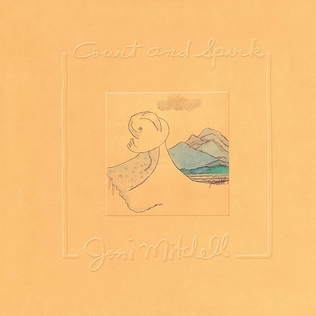
Court and Spark is the sixth studio album by Canadian singer-songwriter Joni Mitchell. Released in January 1974, it infuses the folk rock style of her previous albums with jazz elements.

Pazz & Jop was an annual poll of top musical releases, compiled by American newspaper The Village Voice and created by music critic Robert Christgau. It published lists of the year's top releases for 1971 and, after Christgau's two-year absence from the Voice, each year from 1974 onward. The polls are tabulated from the submitted year-end top 10 lists of hundreds of music critics. It was named in acknowledgement of the defunct magazine Jazz & Pop, and adopted the ratings system used in that publication's annual critics poll.
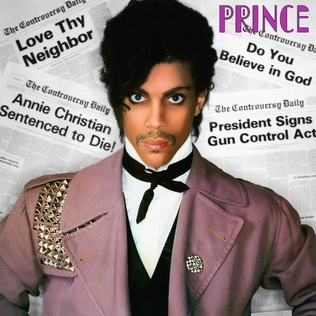
Controversy is the fourth studio album by the American singer-songwriter and musician Prince, released on October 14, 1981, by Warner Bros. Records. It was produced by Prince, written by him, and he also performed most of the instruments on its recording.
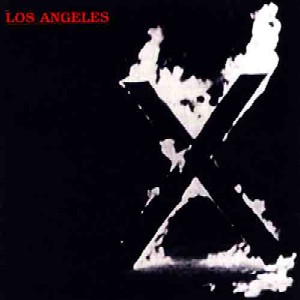
Los Angeles is the debut studio album by American rock band X, released on April 26, 1980, by Slash Records. It was produced by ex-Doors keyboardist Ray Manzarek and includes a cover of the 1967 Doors song "Soul Kitchen".

The Bride Stripped Bare is the fifth solo studio album by English singer Bryan Ferry. It was released in 1978, shortly before Ferry reconvened his band Roxy Music which had been on hiatus for three years. It was recorded after his girlfriend Jerry Hall left him for Mick Jagger in 1977, and appears to contain references to their break-up. The album peaked at number 13 on the albums chart in the United Kingdom.
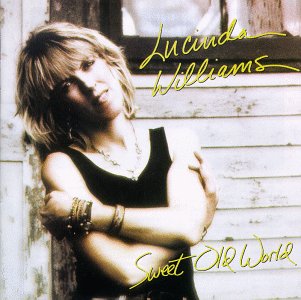
Sweet Old World is the fourth studio album by American singer-songwriter Lucinda Williams, released on August 25, 1992, by Chameleon Records.

In All Languages is a 1987 double album by Ornette Coleman. Coleman and the other members of his 1950s quartet, trumpeter Don Cherry, bassist Charlie Haden, and drummer Billy Higgins, performed on one of the two records, while his electrified ensemble, Prime Time, performed on the other. Many of the songs on In All Languages had two renditions, one by each group.

Ask the Ages is the final album recorded by jazz guitarist Sonny Sharrock during his lifetime. It was produced by Bill Laswell and released in 1991 on his Axiom Records label. It features saxophonist Pharoah Sanders, bassist Charnett Moffett and drummer Elvin Jones.

Heat Treatment is the second album by English singer-songwriter Graham Parker and his band The Rumour, released in October 1976. A close follow-up to Parker's debut album Howlin' Wind, Heat Treatment was well received by critics and contains signature Parker songs like the rollicking title track, "Pourin' It All Out", and "Fool's Gold". "That's What They All Say" is a Dylan-esque putdown from a realist perspective, while "Turned Up Too Late" was perhaps Parker's most emotionally mature composition to date. "Black Honey" is a dark, downcast sequel to the debut's upbeat first track "White Honey". "Hotel Chambermaid" was covered many years later by Rod Stewart. The Rumour was credited on the back cover and the label, but not on the album's front cover.

Pangaea is a live album by American jazz trumpeter, composer, and bandleader Miles Davis. It was originally released as a double album in 1976 by CBS/Sony in Japan.
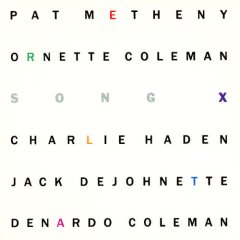
Song X is a collaborative studio album by American jazz guitarist Pat Metheny and saxophonist Ornette Coleman. It is a free jazz record that was produced in a three-day recording session in 1985. The album was released in 1985 by Geffen Records.

Circle in the Round is a 1979 compilation album by jazz musician Miles Davis. It compiled outtakes from sessions across fifteen years of Davis's career that, with one exception, had been previously unreleased. All of its tracks have since been made available on album reissues and box sets.

...And a Time to Dance is a 1983 EP by Los Lobos. It was co-produced by T-Bone Burnett and Steve Berlin and was the band's first release on Slash Records. The EP brought the band its first wide acclaim. It was voted best EP of the year in the Village Voice's influential Pazz & Jop critics poll. Critic Robert Christgau gave the record an "A−" in his Consumer Guide, calling it "good old rock and roll East L.A. style." Trouser Press raved about "a spicy romp back and forth across musical borders few can traverse with such ease," while Rolling Stone called it "an infectious dance record that deserves to be heard by rock fans."

Of Human Feelings is an album by American jazz saxophonist, composer, and bandleader Ornette Coleman. It was recorded on April 25, 1979, at CBS Studios in New York City with his band Prime Time, which featured guitarists Charlie Ellerbee and Bern Nix, bassist Jamaaladeen Tacuma, and drummers Calvin Weston and Coleman's son Denardo. It followed the saxophonist's failed attempt to record a direct-to-disc session earlier in March of the same year and was the first jazz album to be recorded digitally in the United States.

Body Meta is an album by Ornette Coleman and Prime Time, released in 1978.
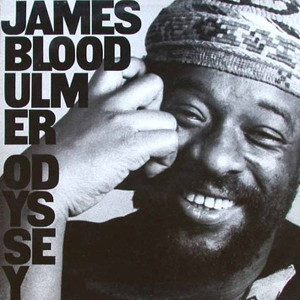
Odyssey is an album by American guitarist James Blood Ulmer, recorded and released in 1983 on the Columbia label. It was Ulmer's final of three albums recorded for a major label. The musicians on the album later re-united as The Odyssey Band and Odyssey The Band.

"After Awhile" is an album by country music singer-songwriter Jimmie Dale Gilmore. It was released in 1991 as his debut album for Elektra Nonesuch Records.




















